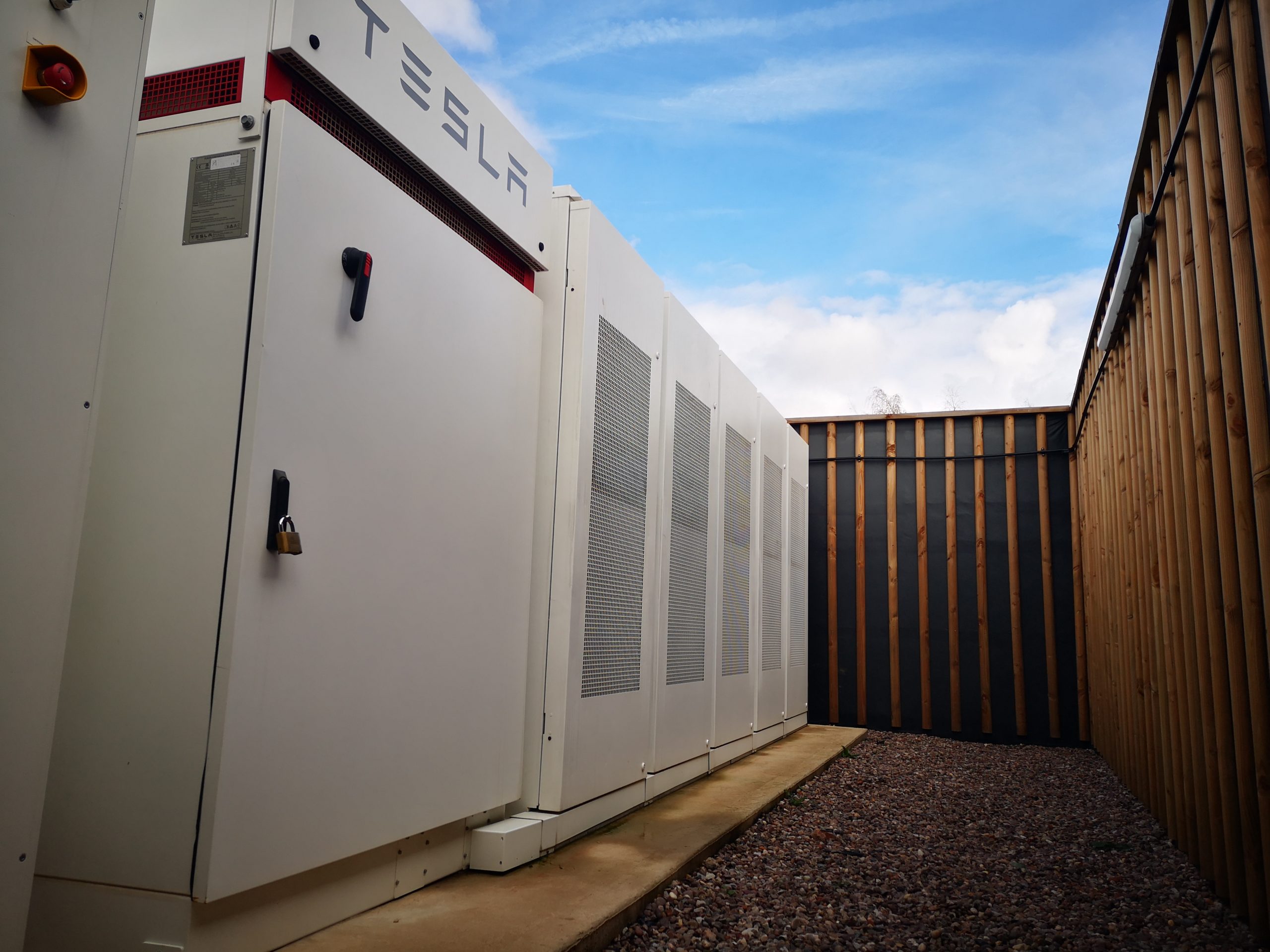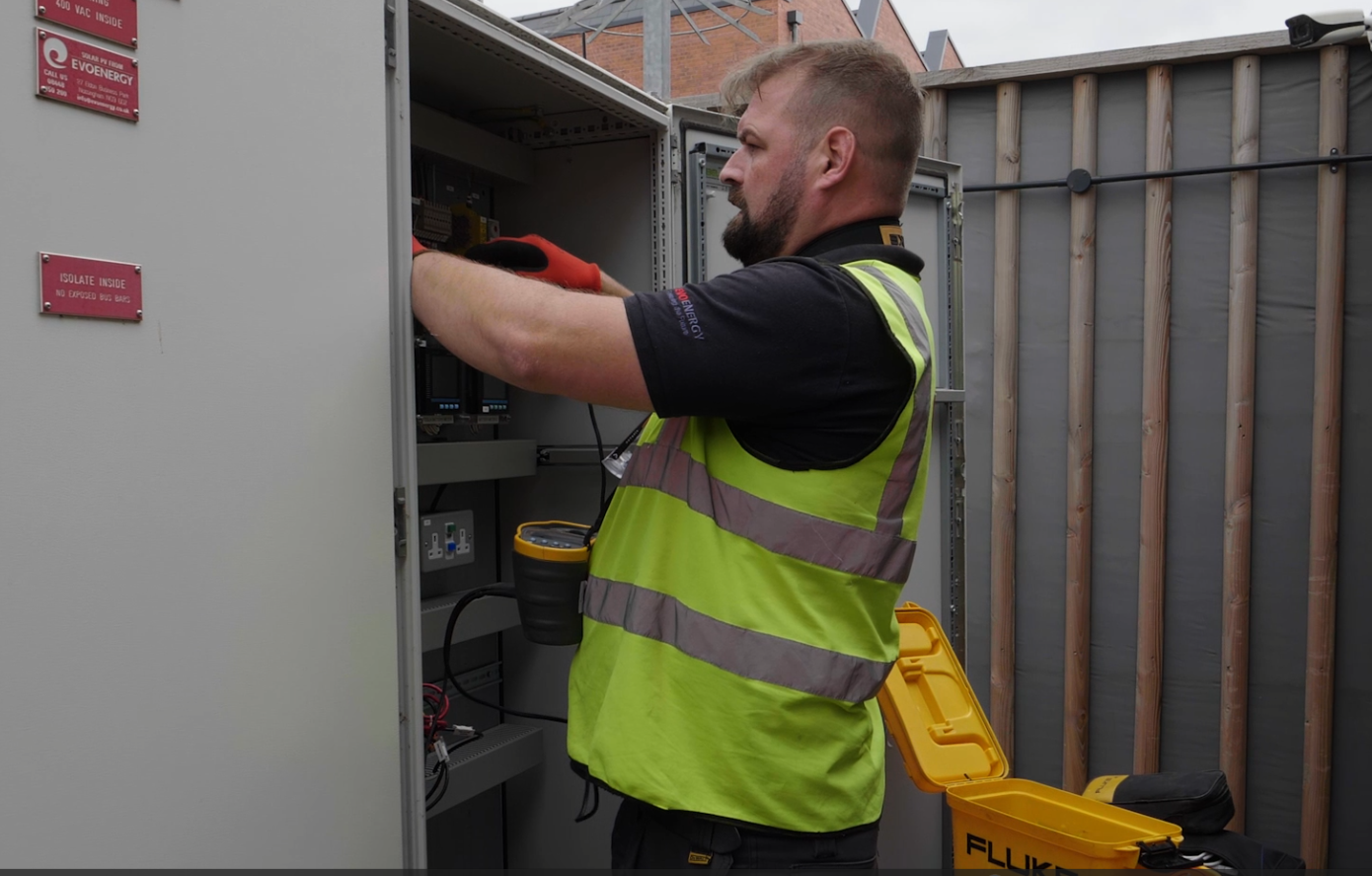What Size Solar Battery Do I Need In The UK? A Comprehensive Answer
When it comes to harnessing energy from the sun’s rays, having the right size solar battery is essential for home and business owners in the UK. A properly sized solar battery can help you get the most out of your panel system and ensure that you’re not wasting energy.
But what size solar battery do you need? It’s a question that’s on many people’s mind, but the answer isn’t as simple as it may seem. In this article, we’ll cover all the key factors to consider before buying a solar battery, and provide you with a comprehensive answer to the question: what size solar battery do I need in the UK?

What size solar battery do you need for your home or business?
The size of the solar battery you need for your home depends on the size of your property and the capacity of your solar panel system. To give you an idea, a one-bedroom home typically requires a 2 kWh battery, while a four-bedroom home needs a 9.5 kWh battery.
If you have a 4 kW solar panel system, you’ll need a battery with a capacity of around 8-9 kWh to efficiently charge it. For a 5 kW solar panel system, a battery with a capacity of 9.5-10 kWh is recommended. Similarly, a 6 kW solar panel system should be paired with a 12 kWh battery, and an 8 kW solar panel system with a 16 kWh battery.
Finally, if you have a 10 kW solar panel system, it is best to have a 20-21 kWh battery to ensure proper charging throughout the day. It’s important to avoid undercharging your solar battery as it can cause damage.
Keep in mind that these are rough estimates and individual energy needs may vary. It’s best to consult with a professional to determine the precise size of solar battery that suits your specific requirements.
What Factors Determine the Size of Your Solar Battery?
The size of solar battery you need to power your home or business depends on a few different factors. Before you can accurately determine the size of the solar battery you need, you need to take into account all the variables that will impact the size of battery you require.
1. Home Or Business Size:
First, you need to consider the size of your home or business. The bigger your building, the more energy it will require to power all your appliances, electronics, and lighting, and the larger the battery capacity required.
2. Home Or Business Energy Usage:
Your building’s energy usage is an important factor to consider when calculating the size of solar battery you need. Your energy usage will determine how much energy your solar battery needs to store. Make sure you take into account all the appliances and electronics you have, and how often you use them.
3. Number of People in the Building:
Another important factor to consider is the number of people living in your home or staff working in your premises. This will determine the amount of energy needed to power all the appliances and electronics.
These are some of the factors that will determine the size of your solar battery. It is important to take all these factors into consideration when choosing a solar battery for your home or business.

Types of Solar Batteries Available
When it comes to solar batteries, there are a few different types available on the market. The type of battery you choose will largely depend on your individual needs and preferences. Let’s take a look at some of the most popular types of solar batteries available.
Lead Acid Batteries: Lead acid batteries are the most common type of solar battery. They are the least expensive option and have been around for decades. Lead acid batteries are reliable and easy to maintain. They typically have a lifespan of 3-5 years and can last up to 10 years with proper care and maintenance. However, they are also the least efficient option, as they can only store and deliver around 50% of the energy they are charged with.
Lithium Ion Batteries: Lithium ion batteries are the most efficient type of solar battery. They are more expensive than lead acid batteries, but they are also more reliable and can store up to 80-90% of the energy they are charged with. They also have a much longer lifespan than lead acid batteries, lasting up to 15 years or more.
Saltwater Batteries: Saltwater batteries are a relatively new type of solar battery. They are powered by electrolytes, rather than acids, and they are both efficient and sustainable. Saltwater batteries are able to store up to 85-90% of the energy they are charged with and can last up to 20 years. They are also non-toxic and safe to use.
What is The Typical Life Expectancy Of A Solar Battery In The UK?
The typical life expectancy of a solar battery in the UK is between 10 and 15 years. After this period of time, the battery may need to be replaced as it is likely to be inefficient and will no longer offer as much storage capacity.
If you want to maximize the lifespan of your solar battery, it’s important to ensure that it is serviced regularly. Regular battery maintenance can help to improve its performance and extend its life. This includes checking for any signs of wear and tear, such as corrosion, and making sure the connections are secure.
Additionally, it’s important to keep the battery in a temperature-controlled environment and to check the electrolyte levels regularly. Doing so can help to reduce the risk of damage due to extreme temperatures. 
Estimating Your Home’s Or Business’s Solar Energy Needs
1. The first step in estimating your home’s solar energy needs is to check your current energy usage. To do this, you’ll need to gather information, such as your monthly electricity bills, energy usage by appliance, and your building’s geographical location. This data will give you an idea of the amount of energy your building needs, which will help you determine the size of battery you need.
2. Once you have the data, you’ll need to calculate your daily energy needs. This calculation will help you determine the size of the solar battery you need. To make this calculation, you’ll need to add up the energy usage of each appliance in your home and multiply it by the number of hours each appliance is used. This number will give you an estimate of your home’s daily energy needs.
3. Next, you’ll need to estimate the size of solar battery you need. To do this, you’ll need to take the estimated daily energy needs of your home and divide it by the amount of energy your solar panels will generate each day. This number will tell you the size of the solar battery you need.
4. Finally, you’ll need to take into account other factors when choosing the size of your solar battery. These factors include the type of solar panel you’re using, the charging speed of the battery, and the number of cycles your battery can undergo. This information will help you make an informed decision on the size of solar battery you should buy.

Other Considerations When Choosing Solar Batteries
In addition to your premises’ size and energy usage, there are other considerations that can affect the size of the solar battery you need for your building in the UK.
The type of solar panel you’re using is one such factor. Different types of solar panels require different types of batteries. Lead acid batteries are typically used in combination with flat plate or evacuated tube solar panels, while lithium-ion batteries are usually used in combination with thin film or polycrystalline solar panels. Saltwater batteries can be used with any type of solar panel.
The charging speed of the battery is also an important factor. Different types of batteries charge at different speeds. For example, lead acid batteries take several hours to charge, while lithium-ion batteries can take as little as an hour. Saltwater batteries charge even faster, in as little as 15 minutes.
The number of cycles your battery can undergo is also a determining factor. Lead acid batteries can withstand up to 1,000 cycles, while lithium-ion batteries can withstand up to 4,000 cycles. Saltwater batteries have the longest life span, lasting for up to 10,000 cycles.
Finally, the cost of the battery should also be taken into consideration. Lead acid batteries are usually the most affordable, with lithium-ion batteries costing significantly more, and saltwater batteries costing the most. However, these costs should be weighed against the amount of energy you’re saving, since the more expensive batteries will often pay for themselves over time.
Choosing the right size solar battery for your home or business in the UK is a complex process, but it’s important to take all of these factors into consideration in order to ensure you have the right system for your needs. By understanding the different types of batteries available, their charging speed, and the number of cycles they can withstand, you can make an informed decision about what size solar battery is best for you.
Conclusion
In conclusion, having the right size solar battery in the UK is essential for any solar energy system. By understanding the factors that determine the size of your solar battery, you can ensure that you’re making the right choice for your home.
From checking your current energy usage and calculating your home’s daily energy needs, to taking into account the type of solar panel you’re using and the charging speed of the battery, you’ll be well on your way to making an informed decision.
